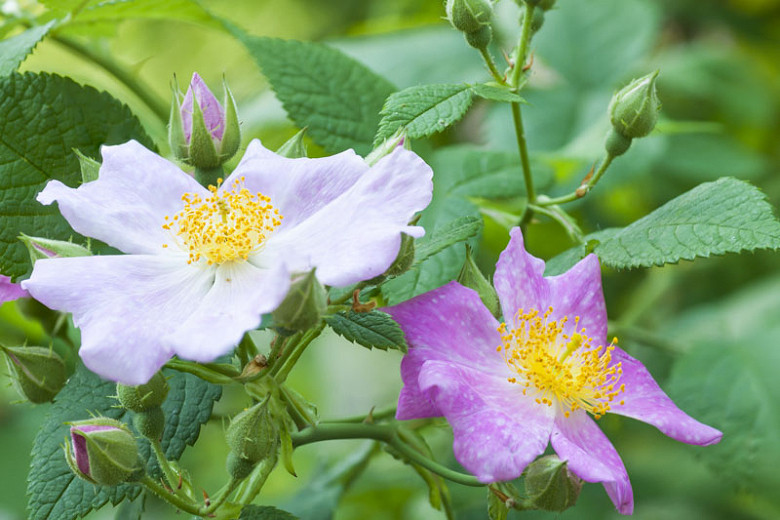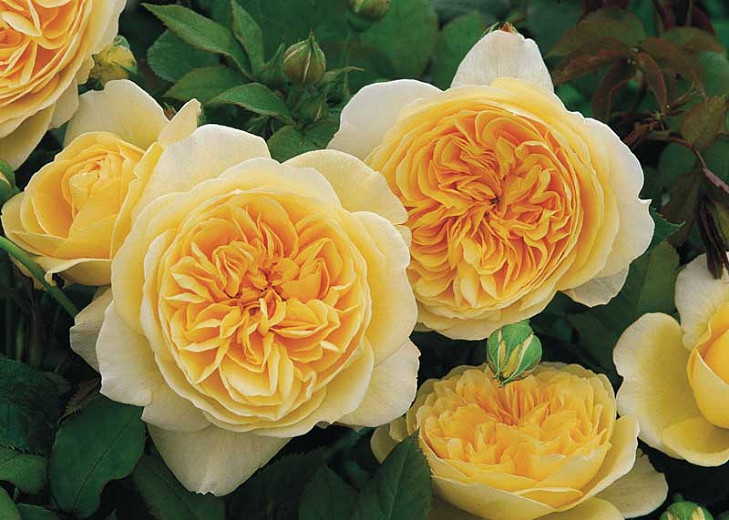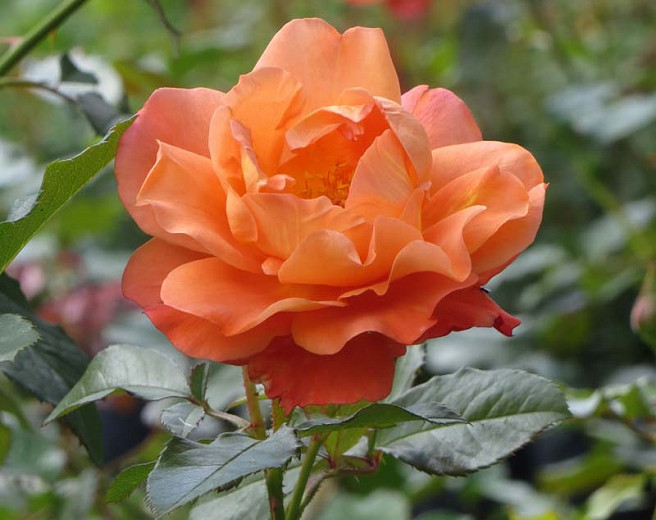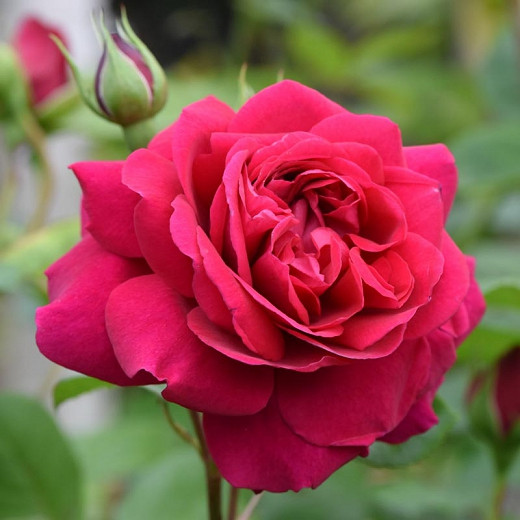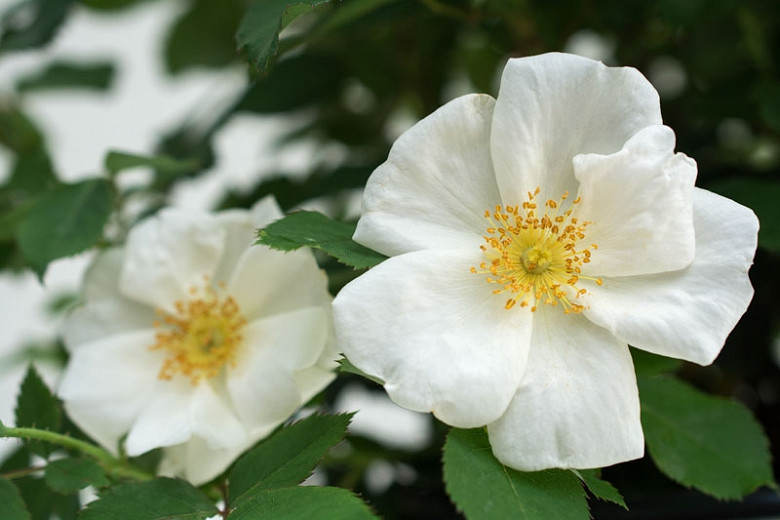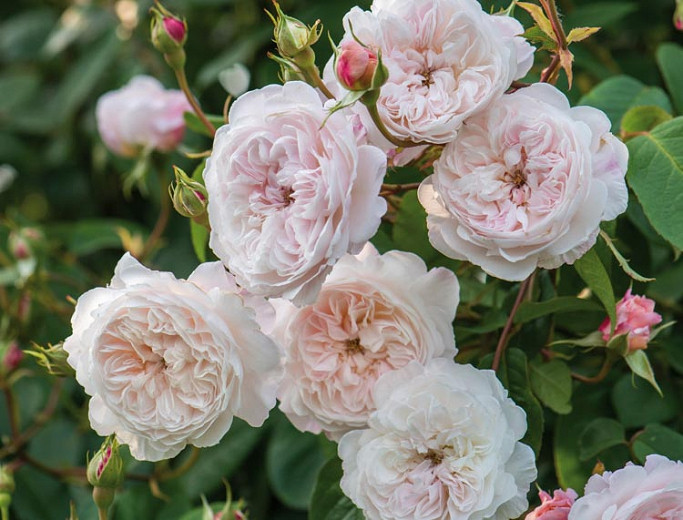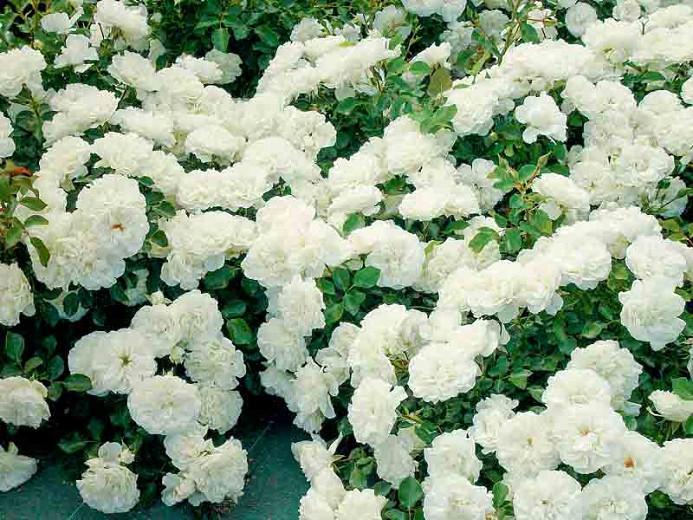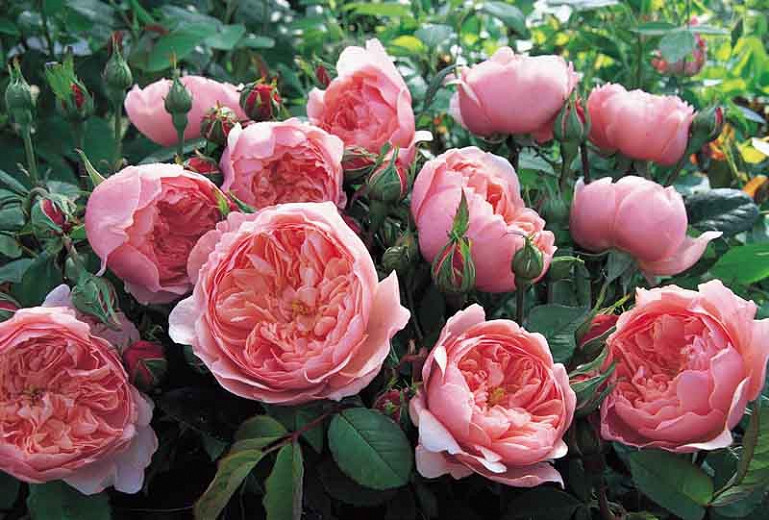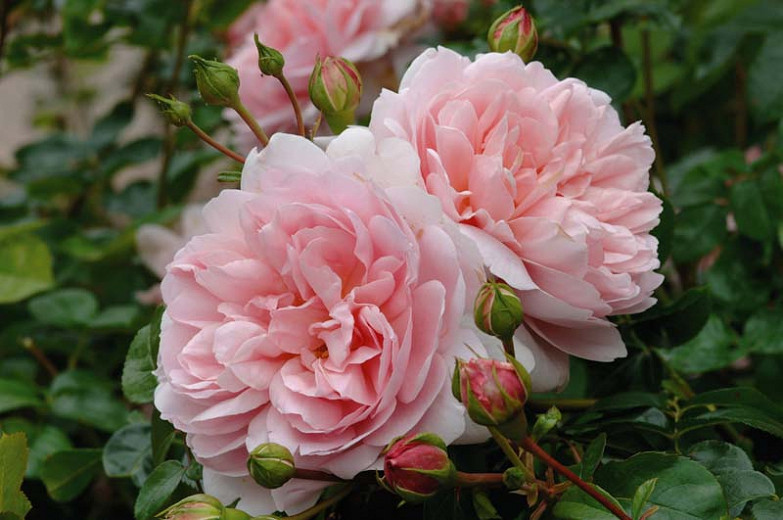Rosa setigera (Prairie Rose)
Rosa setigera (Prairie Rose) is a deciduous shrub or woody vine with long climbing branches covered with lustrous, dark green, compound leaves that turn deep red and purple in the fall. The branches are studded with short, stout, and slightly curved prickles. In late spring to early summer, a profusion of mildly fragrant, 5-petaled, pale pink to rosy pink flowers, 2 in. across (5 cm), are on display. They are adorned with a showy bouquet of golden stamens and tend to fade to white as they age, creating a beautiful bi-color effect. Borne in small clusters, they bloom for about a month. They are followed by bright red rose hips that are relished by hungry birds. Prairie Rose is a lovely addition to a wildlife garden and is useful in a location where it can freely ramble or climb.
- Grows up to 6-12 ft. tall (180-360 cm) and 8-10 ft. wide (240-300 cm). Prairie Rose reproduces by seed or suckering of the stems.
- Best grown in full sun in evenly moist or mesic, well-drained soils. Tolerates part shade, but best flower production and disease resistance usually occur in full sun. Provide summer mulch to retain moisture and keep roots cool. Dislikes wet conditions with standing water or droughty conditions.
- Perfect for cottage gardens, wildflower meadows, native plant gardens, or as an informal hedge.
- This rose species has better natural disease resistance than most hybrid roses. Keep an eye out for aphids, beetles, borers, scale, thrips, rose midges, leafhoppers, and spider mites.
- Attractive to pollinating insects, butterflies, and birds
- Prune in late winter to early spring.
- Propagate by cutting, seed, grafting/budding.
- Native to eastern and central North America.
Requirements
| Hardiness | 5 – 8 |
|---|---|
| Plant Type | Climbers, Roses, Shrubs |
| Plant Family | Rosa – Rambling Roses, Rosa – Roses |
| Exposure | Full Sun, Partial Sun |
| Season of Interest | Spring (Late)Summer (Early)Fall |
| Height | 6' – 12' (180cm – 3.6m) |
| Spread | 8' – 10' (240cm – 3m) |
| Spacing | 96″ – 120″ (240cm – 300cm) |
| Water Needs | Average |
| Maintenance | Average |
| Soil Type | Clay, Loam, Sand |
| Soil pH | Acid, Alkaline, Neutral |
| Soil Drainage | Moist but Well-Drained |
| Characteristics | Fragrant, Showy, Fruit & Berries |
| Native Plants | United States, Midwest, Illinois, Indiana, Iowa, Kansas, Michigan, Missouri, Nebraska, Ohio, Wisconsin, Northeast, Connecticut, Massachusetts, Maryland, New Hampshire, New Jersey, New York, Pennsylvania, Alabama, Arkansas, Florida, Georgia, Kentucky, Louisiana, North Carolina, South Carolina, Tennessee, Virginia, West Virginia, Southwest, Oklahoma, Texas |
| Attracts | Birds, Butterflies |
| Garden Uses | Beds and Borders, Hedges and Screens |
| Garden Styles | Informal and Cottage, Prairie and Meadow |
